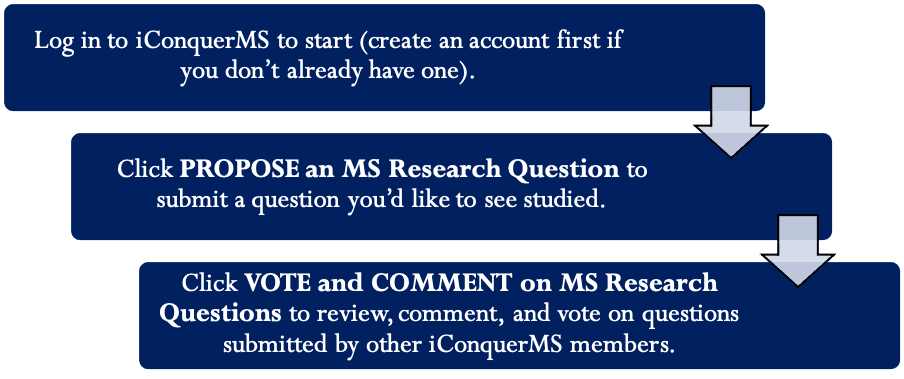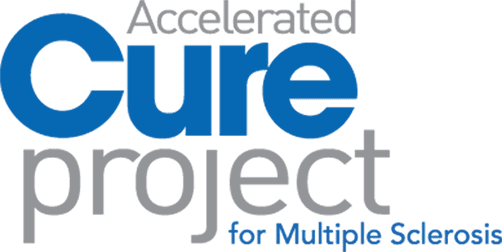Research opportunity and event information may be provided on behalf of an external organization. Please refer to the contact information within each listing to identify the contact for questions or comments.
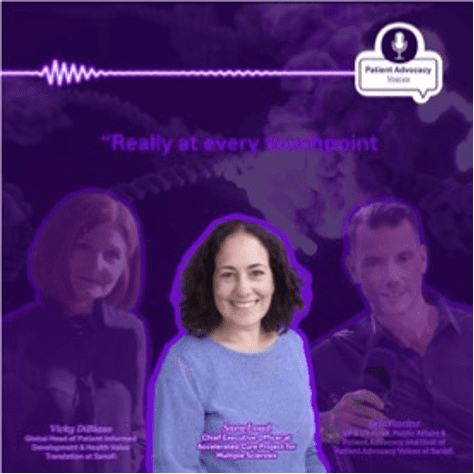
LISTEN IN! A New Podcast Episode – Patient Advocacy Voices
Our own Sara Loud was a guest on a recent episode of Sanofi’s podcast, Patient Advocacy Voices! Sara joined cohosts Eric Racine and Vicky DiBiaso to discuss our shared mission of patient-informed and people-powered research, and our collaboration with the Patient Advocacy Leaders and Drug Development Industry Network (Paladin) to create meaningful change for patients.
Listen to the episode here! How to Transform the Pace of Medicine Through Industry Partnerships

A new clinical trial for adults with relapsing or progressive forms of MS
A new clinical trial for MS is open for adults with relapsing or progressive forms of MS. This trial is evaluating a type of immune cell therapy called “chimeric antigen receptor (CAR) T cell therapy” for use in MS. The sponsor of the trial is Bristol Myers Squibb and there are 30 participating sites located throughout the US and Europe.
What is CAR T therapy?
This study is evaluating a new type of therapy, not yet approved for MS, that involves modifying the immune system. This therapy is called chimeric antigen receptor (CAR) T cell therapy.
T cells are a kind of white blood cell that attacks foreign invaders in the body.
In CAR T cell therapy, T cells are removed from a person’s blood, and then, at a laboratory, the T cells are modified so that they target and attack the cause of disease symptoms. Next, these T cells, now called CAR T cells, are multiplied in the laboratory and returned to the same person’s bloodstream through an infusion at a later time.
CAR T cell therapy is being evaluated for use in many autoimmune conditions. It has been a promising option for several types of cancers and is FDA approved as a therapy for leukemia, lymphoma, and multiple myeloma.
Researchers believe that, when used to address relapsing or progressive MS, CAR T cell therapy may help the body destroy malfunctioning immune cells, potentially leading to MS improvement or remission.
About the CA061-1006 study
This study is evaluating the safety of an investigational CAR T cell therapy in adults with relapsing or progressive forms of MS. About 98 individuals will be enrolled in this study. Everyone who enrolls and is eligible will receive the CAR T cell therapy – there is no control group in this study.
Participation will last just over two years and consist of three main periods.
- Pre-study treatment period (around 2 weeks)
- Tests and procedures to check eligibility
- Discontinuation of any MS disease-modifying therapies
- Collection of T cells from the bloodstream to be modified into CAR T cells
- Study treatment period (around 5 weeks)
- One single chemotherapy treatment to reduce certain types of immune cells so that they do not attack the CAR T cells
- Infusion of the CAR T cells into the bloodstream
- Additional 14-day period for more testing at the study site; requires staying within a one-hour drive of the study site
- Study follow-up period (2 years, or longer for those who joino an optional long-term follow-up phase)
- Periodic visits to the study site for testing
- Periodic phone calls with the study staff
You will not be responsible for study-related costs, such as visits, laboratory tests, and procedures. You will also be eligible for reimbursement for costs, like time, travel, or transportation, depending on your location. The trial sponsor will cover the costs of lodging and possible other expenses for participants and needed care-partners who do not live within an hour drive of the study site.
Who is eligible for the study?
Eligible participants who have relapsing MS must:
- Be 18 to 50 years of age
- Have a diagnosis of relapsing-remitting MS or active secondary progressive MS
- Have experienced either an MS relapse or one or more new MRI lesions in the previous 12 months
Eligible participants who have progressive MS must:
- Be 18 to 60 years of age
- Have a diagnosis of primary progressive MS or inactive secondary progressive MS
Participants must NOT have any active autoimmune disease (other than MS) requiring immunosuppressive therapy.
There are other eligibility criteria as well which you can discuss with the study team.
Where can you learn more about this study?
For more information about the CA061-10096 study, please click here.
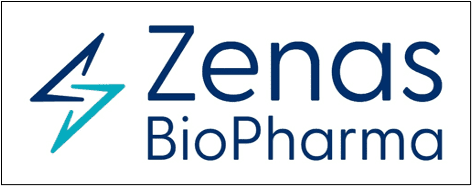
The MoonStone Study: A Research Study for Adults with Relapsing MS
This message is intended for residents of the United States.
Our research partners at Zenas BioPharma are looking for people diagnosed with Relapsing Multiple Sclerosis (RMS) to participate in the MoonStone study.
What is the purpose of the study?
The purpose of the study is to assess the safety and effectiveness of a new investigational drug in MS called obexelimab. Obexelimab works to reduce the activity of B cells, a type of immune cell that can contribute to MS.
What does the study involve?
Participation in the MoonStone study is up to 92 weeks (1.8 years), with regularly scheduled clinic visits. These onsite visits will typically include: physical exams, blood tests, neurological tests, and magnetic resonance imaging scans (MRIs), among other activities.
- After the 4-week screening period, participants will be randomly assigned to receive either obexelimab or a placebo weekly for 12 weeks, followed by all participants receiving obexelimab weekly for the remaining 64 weeks.
- After the treatment period, there is a 12-week follow-up period in which no treatment will be given.
You will receive either obexelimab or a placebo as a weekly injection under the skin (subcutaneous injection). For the first month, these injections will take place at the study clinic so the study team can monitor you closely. After that, you and your study doctor can decide if you’ll continue coming to the clinic for your injections or if you can start giving them at home.
Transportation and meals will be covered for all participants.
Who can participate? The study is enrolling people who:
- Are age 18 to 60
- Have a diagnosis of relapsing MS (relapsing-remitting MS or active secondary progressive MS)
- Have an EDSS of ≤ 5.5 at the Screening Visit
- Have had:
- At least 1 documented relapse within the previous year, or
- At least 2 documented relapses within the previous 2 years, or
- At least 1 active contrast-enhancing brain lesion on an MRI scan in the 6 months prior to screening
There are other eligibility criteria as well, which you can discuss further with your local site.
How can I learn more? To learn more about this study, please contact Zenas BioPharma at 833-269-4696 or at clinicaltrialsinfo@zenasbio.com. For a list of study sites, visit https://clinicaltrials.gov/study/NCT06564311. The clinical sites taking part are listed in the Contacts and Locations section.
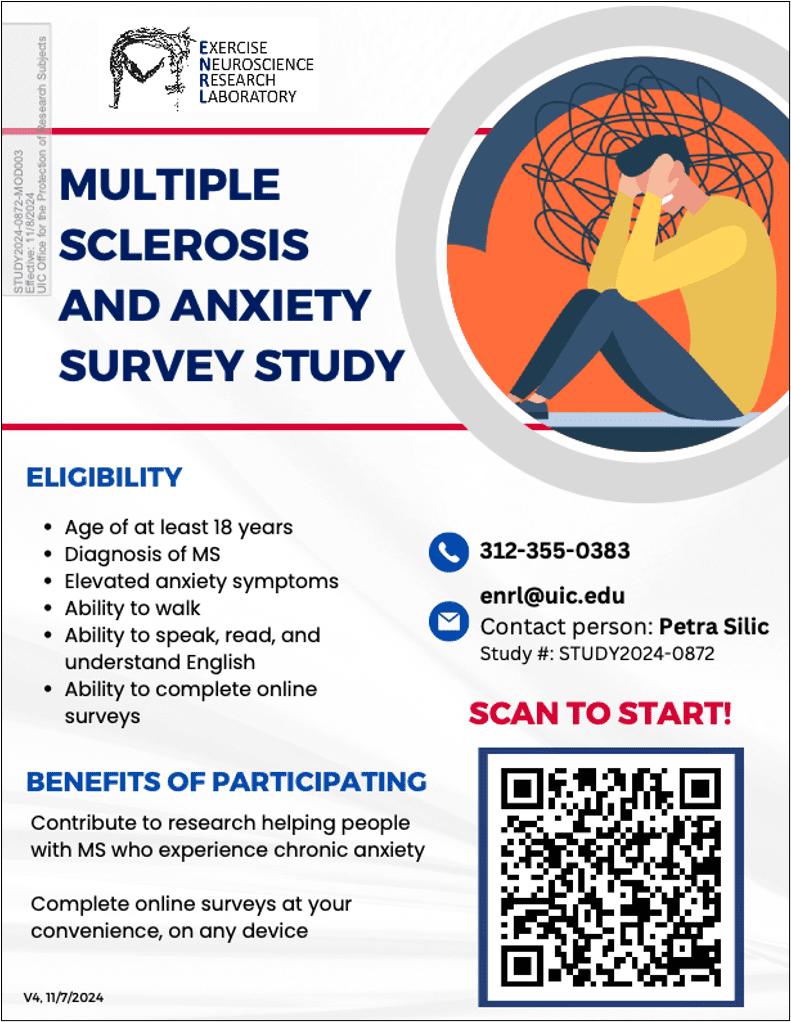

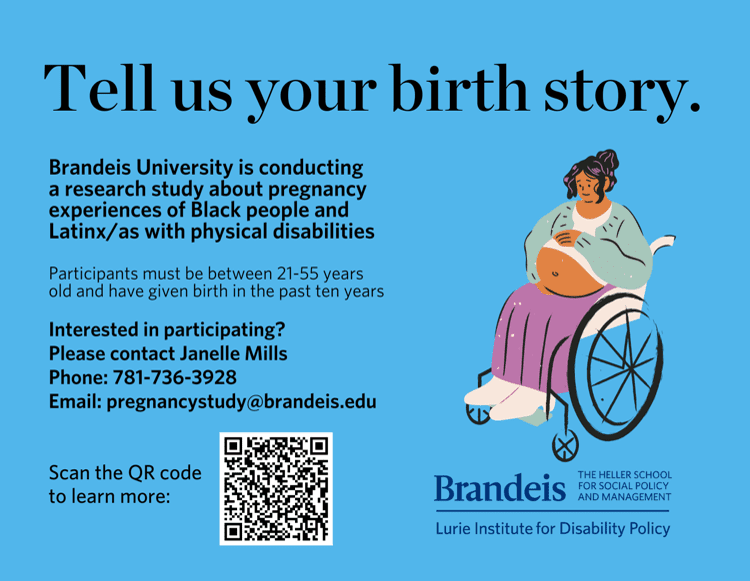
Participants will be offered a $50 Amazon gift card for completing the interviews.
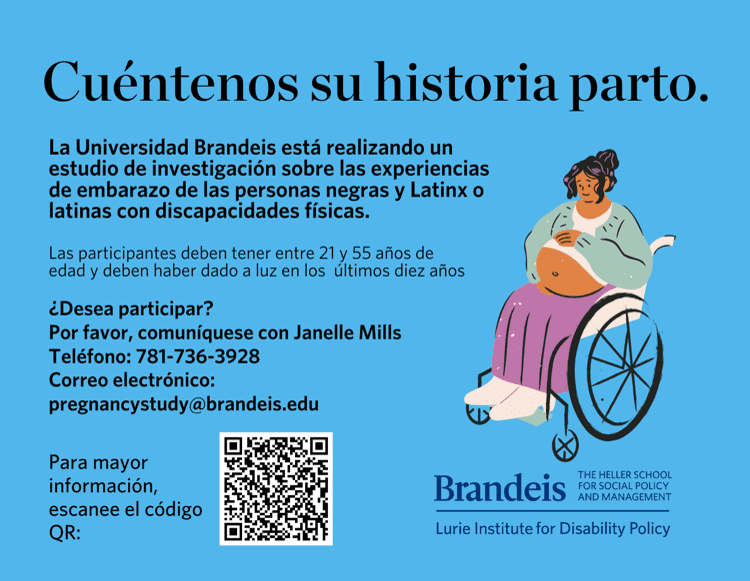

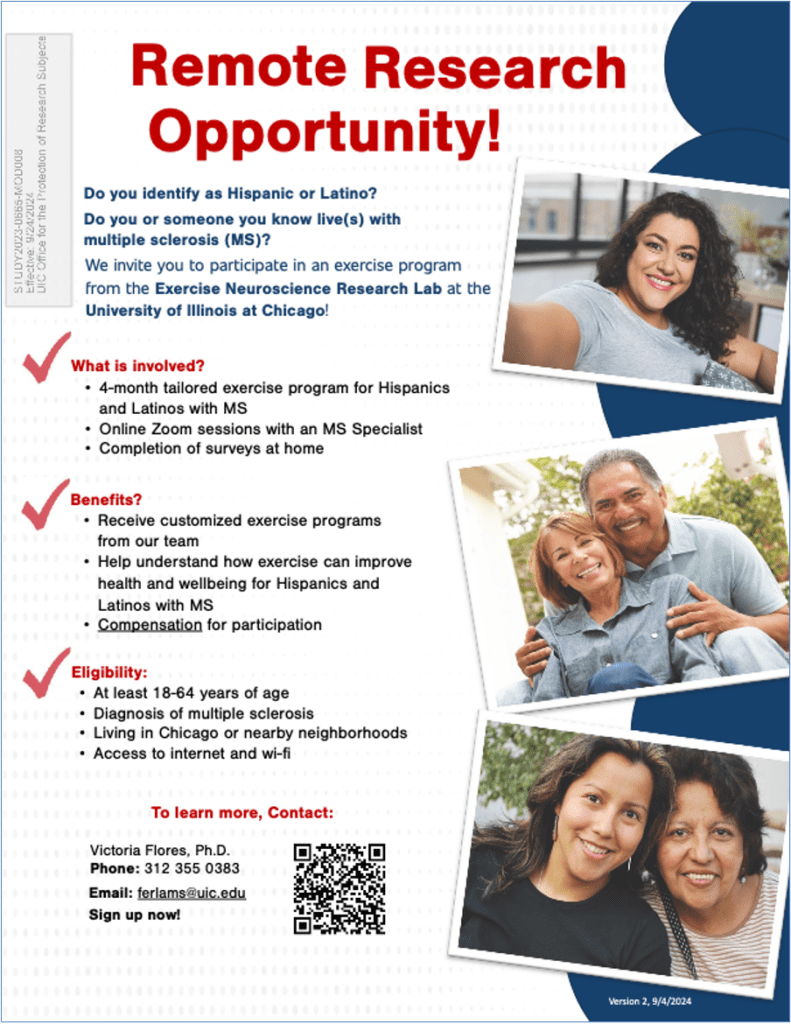

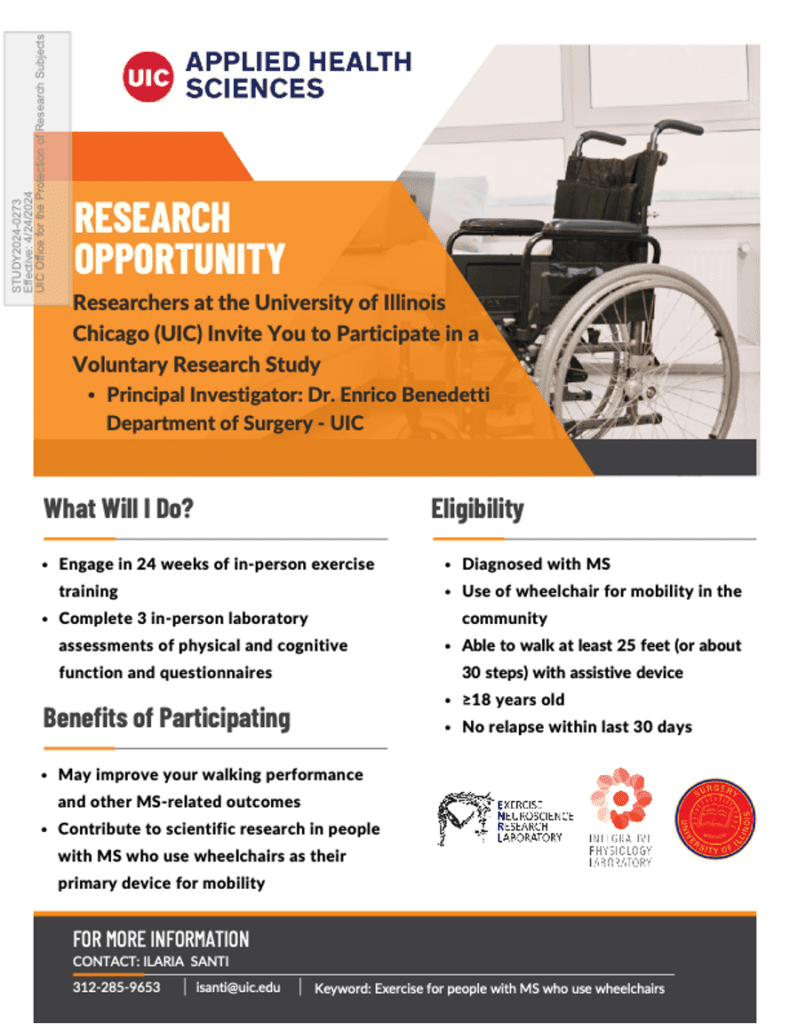
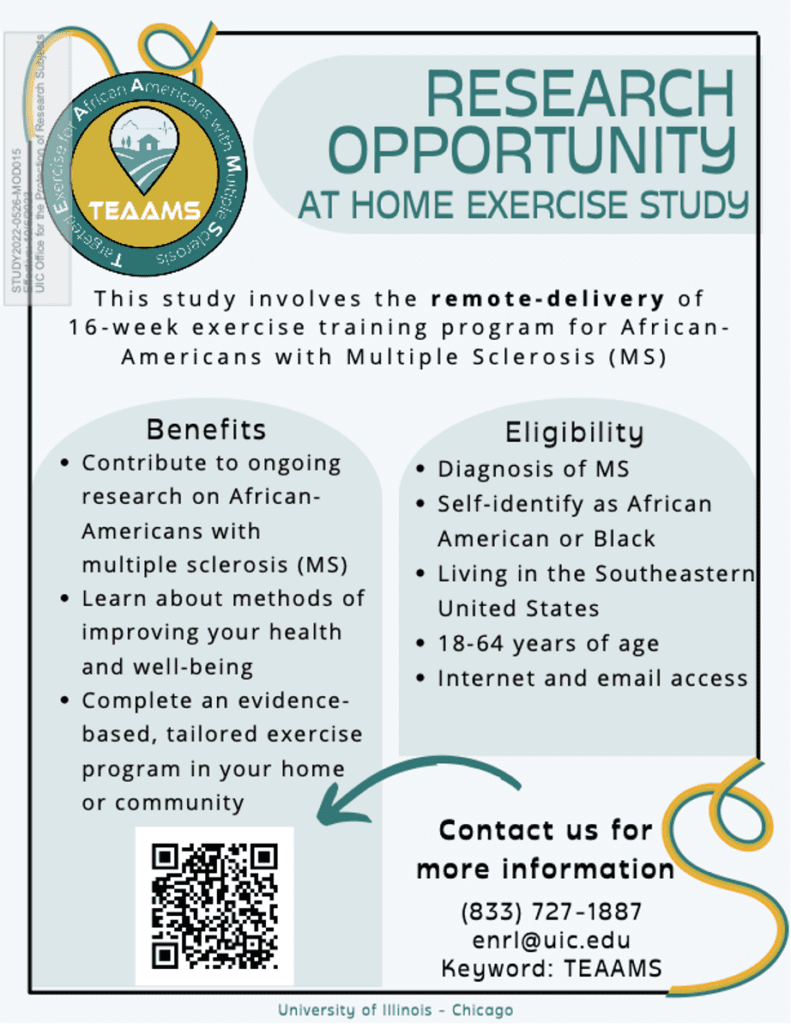
Study participants recently spoke about their experiences taking part in the TEAAMS study on Brain Chat with the Nerdy Neurologist and RealTalk MS. Tune in and listen today!
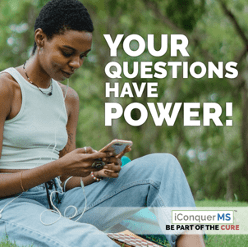
A new topic for the Our Questions Have Power program!
When it comes to MS symptoms and how to manage them, what questions are most important to you? What symptom-related topics do you wish researchers were studying? Your questions are valuable and we invite you to share them through the Our Questions Have Power program on the iConquerMS website.
The Our Questions Have Power program was launched in March 2021 with an initial focus on COVID-19. Questions submitted by iConquerMS members have helped shape the COVER-MS vaccination study and are being shared with the research community to guide other efforts.
We’re now extending Our Questions Have Power to include a second topic: MS symptoms and their management and treatment. As before, you’re invited to share questions on this topic that you think should be studied and to vote on questions submitted by other iConquerMS members. We’ll share these questions with people affected by MS, researchers, healthcare professionals, advocates, and funders – and, together, we’ll work to launch research studies to answer those questions.
It’s easy to share your ideas and input in Our Questions Have Power!
